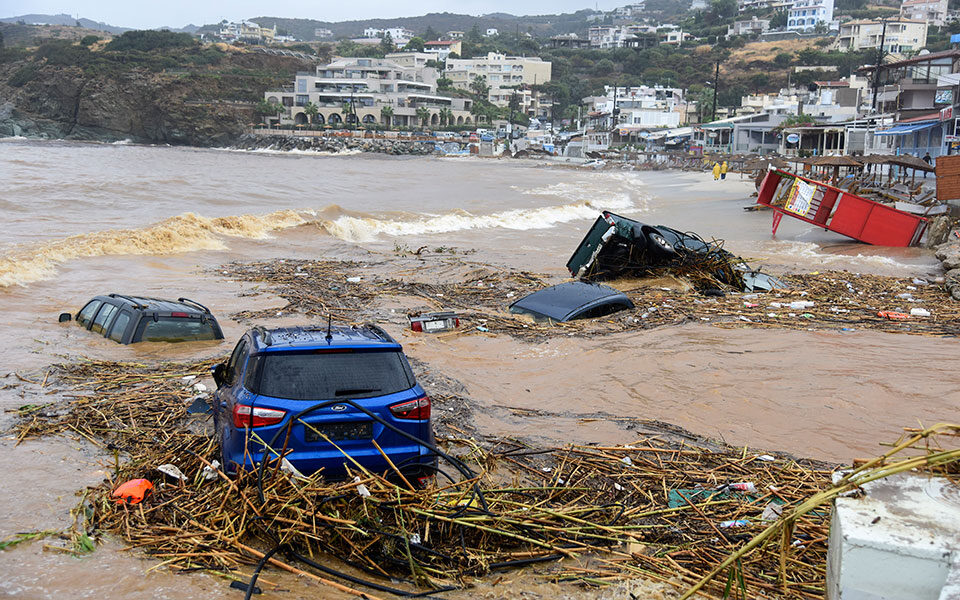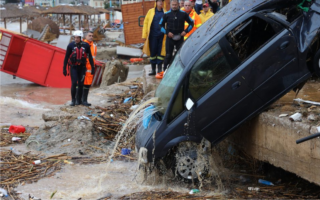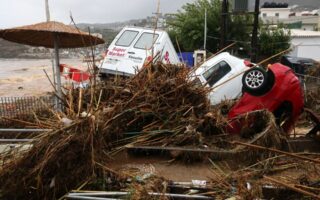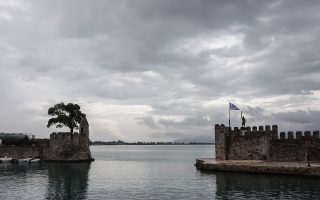Three causes identified for Crete disaster

In the wake of the deadly floods that wreaked havoc on the island of Crete last Saturday and led to the death of two people and extensive material damage, experts have stressed that a shift in mentality is imperative in the planning of prevention initiatives.
They essentially identified three factors that facilitated the disaster in the settlement of Agia Pelagia: namely the high volume of water, the erosion of the stream bed and insufficient infrastructure
“Short in duration but strong in intensity, storms are the steady component of most of the floods we have experienced in recent years,” said Michalis Diakakis, a geologist and permanent associate of the Department of Geology at the University of Athens.
“These storms create a problem in areas that have small watersheds, not large rivers. If the same volume of rain fell on Mount Parnitha, it would not create rapids as the flow would be smoothed out. Small streams are sensitive to short and intense storms of short duration,” he noted, citing some deadly floods with similar characteristics in recent years in Ialyssos in Rhodes (in 2013), Mandra in Attica (in 2017,) and in Vassilika and Politika in Evia (2020).
A second issue that compounded the disaster in Agia Pelagia was the encroachment on streams and their floodplain.
“In the area there is too much development vertically and parallel to the waterway. It’s something that often happens in dry streams: because for years they may not have much water, people slowly turn them into roads or build up their beds,” he noted.
A third factor was that a significant portion of the stream is covered by a slab-lined culvert.
Diakakis insisted that a change in preventive planning is in order. “The question now arises as to whether we should change our philosophy in the design of our flood protection works,” he stressed.





